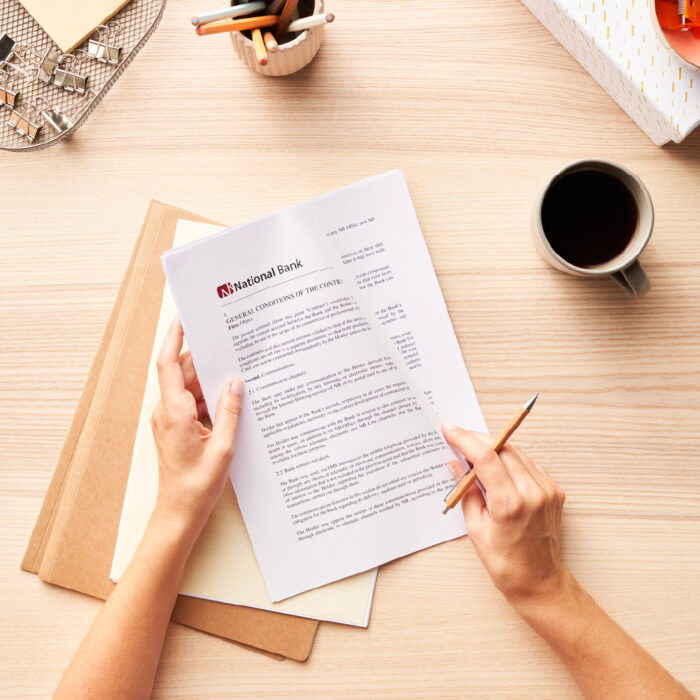In the US, sales tax is charged at the point of sale, most of the time.
Four US states don’t have a state sales tax, so if you’re lucky enough to live or visit Delaware, Montana, New Hampshire, or Oregon, you won’t pay sales tax when making a purchase (as long as you make that purchase or have that purchase shipped within state lines).
But there are some other use cases where buyers can claim sales tax exemptions and not pay sales tax when making a purchase.
Let’s dig into those particular situations:
Retailers buying products to resell
In the US, sales tax is considered a “consumption tax.” It’s paid by an end user who then uses (or “consumes”) the product. This is also why sales tax is sometimes called “sales and use tax.”
So, when a retailer buys items to sell at resale from a manufacturer or distributor, that retailer is not the end user of the item. In that case, the retailer is not required to pay sales tax when purchasing inventory to resell, because they are not the end user, i.e. the person who “consumes” the product.
Also keep in mind that manufacturers, distributors, wholesalers and other vendors reserve the right to refuse service if they are unsure about your tax exempt status. More on that in the “How to Claim a Sales Tax Exemption” section below.
Manufacturer buying materials to use in manufacturing
Similar to retailers, manufacturers are also eligible to buy goods without paying sales tax. Again, this is as long as that manufacturer is using these materials to manufacture into other goods for resale.
And the term “manufacturer” doesn’t just apply to big mills with smokestacks sticking out of them. A handcrafter who creates handmade creations to sell on sites like Etsy also fit this definition of manufacturer. Ex: An artist who makes stained glass windows can buy the glass sheets and solder they use to make their finished product without paying sales tax, as long as they plan to use those materials in an item they intend to resell to an end user down the line.
To sum it up, a manufacturer might buy a pallet of screws without paying sales tax on the transaction, then use those screws in the creation of dining room tables. From there, they can sell those dining room tables to retailers. The retailers are not required to pay sales tax either. From there, the retailer displays these dining room tables in their showroom and ultimately sells them to consumers. It’s only then, when the retailer sells the item to the consumer, that sales tax is paid.
Government entities
In most US states, sales to government entities are tax exempt. For instance, in Alabama, a state run school does not have to pay sales tax when purchasing supplies.
A handful of states, like California and Minnesota, do not automatically consider state and local government entities to be tax exempt. Though, even in states where not every government transaction is tax exempt, there are at least some use cases where state and/or local government entities are not required to pay sales tax when making a purchase.
Further, sales to the US government are always sales tax exempt.
Charitable or other nonprofit organizations
Depending on the state, nonprofit organizations may be exempt from paying sales tax.
Unlike with the other entities on this list, however, this varies greatly from state to state. Further, some states that do not consider nonprofits totally exempt from paying sales tax, will still allow the nonprofit to claim a sales tax exemption as long as the organization is making tax free purchases directly aligned with their nonprofit mission.
For example, a historic preservation archive would be allowed to purchase archival boxes used to preserve old documents without paying sales tax. But, that same organization would still need to pay sales tax on things like coffee and desk chairs that, while necessary, do not directly support the charitable organization’s mission.
How to claim a sales tax exemption
Think you or your organization can buy items tax free? Great! But now your state government requires that you prove it.
Confirm your sales tax exempt status in each state
Double check with your state whether or not you truly can buy items tax free. Remember, only some states allow charitable nonprofits or government entities to purchase items without paying sales tax.
Also keep in mind that sales tax is governed at the state level, and each state makes their own rules and laws. If your business or organization does business in more than one state, you will likely have to deal with wildly different sales tax rules and regulations.
For example, nine states do not allow retailers with out-of-state resale certificates to purchase items tax free. Your business can use exemption certificates in those states, but only if you also register with that state’s taxing authority as an in-state business first. And depending on your business type, this may or may not be worth the hassle.
Or, if you are a government entity near the Georgia/South Carolina border, you may find that when you buy items on the Georgia side of the border your items are tax free, but when you buy items on the South Carolina side of the border, your items are taxable.
We always recommend speaking with a vetted sales tax expert should you have any questions on your sales tax exempt status.
Provide your vendors with a valid exemption certificate
Reputable vendors will not simply sell to you tax free because you say so. You are required to provide an “exemption certificate” to each company from which you wish to purchase goods tax free. When buying items to sell at retail, this can also be known as a “resale certificate.”
Exemption certifications are your proof that your business or organization is eligible to purchase items tax free, either for resale or because you are an exempt entity. If you can’t show this proof, then you won’t be allowed to purchase without paying sales tax, no matter if you are eligible or not.
Why is this? In most states, the onus is on the vendor – the company choosing whether or not to charge you sales tax – to determine if you really are an exempt business or entity. If they don’t do their due diligence in ensuring that a customer truly can make purchases tax free, they may very well end up on the hook to repay the sales tax they didn’t collect should that customer’s tax-exempt claims turn out to be fraudulent.
That’s why vendors require an exemption certificate and will generally verify your tax exempt status before selling to you. (And if one of your customers claims to be tax exempt? You should require a valid exemption certificate and verify their tax exempt status, too!)
Many states will also recognize the Uniform Sales & Use Tax Certificate. So, if you do business in multiple states, this may be a time saving way for you to present your vendors with your tax exempt documentation.
Learn more about resale certificates in every US state here.
How to streamline your compliance with TaxJar
As you can see, sales tax compliance is challenging. There are so many important details that businesses must be aware of to stay compliant and avoid penalties. TaxJar can make compliance easier, by managing all the different aspects, including keeping you updated on where you have nexus, registering for sales tax permits, and automating sales tax filing and remittance. To learn more about TaxJar and get started automating your sales tax compliance, start a free, 30-day trial today.



